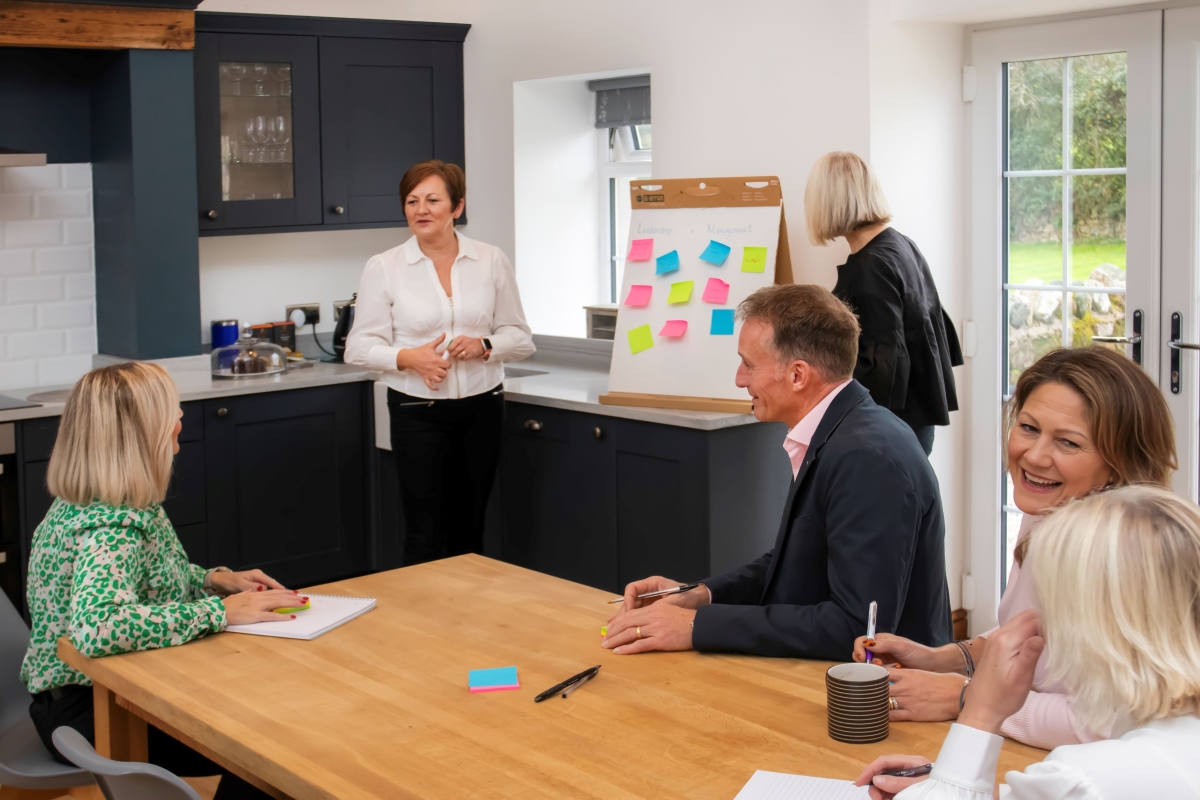Levelling Up as a Nation of Lifelong Learning

The long-awaited Levelling Up White Paper was published on 2 February 2022. There are some admirable and well thought through concepts and creative and robust implementation theories and techniques, but without the promise of new money there is a sense of so what!
Whitehall concepts and theories are not enough to change people’s lives. We need practical, on the ground joined-up action that has the individual at the centre of lifelong learning and all government policy making.
Lifelong Learning or Lifetime training?
HOLEX were keen to see what would be said about lifelong learning and the role of skills and adult education. The narrative, in parts, did not disappoint but in one area the commitment promise seemed changed from lifelong learning to a much more constrained term of lifelong training. We are hoping this is not a policy change but just a slip in editing and further guidance will embrace a full lifelong learning strategy of being all age, all stages and all levels.
It was useful that the Levelling Up white paper reconfirmed previously announced programmes such as the Lifelong Loan Entitlement for L4-6 higher education, the new Multiply initiative for numeracy skills and Local Skills Improvement Plans, which also feature in the Skills and Post-16 Education Bill going through Parliament.
The concept of a Future Skills Unit (FSU) is something HOLEX and its members have lobbied for, and we are encouraged that DfE will be joined by DWP and DBEIS in this endeavour. But the FSU needs to be able to produce information, report trends quickly and in a format that is useful for providers and the owners of LSIPs so they can make use of the data to develop their own regionally and locally relevant plans.
It was also helpful that the next stage of devolution to the counties was laid out.
There are other key commitments which, if successful, will have a long term impact on adult skills, like improving children’s literacy levels and the creation of 55 Education Investment Areas (EIAs) tasked with improving school performance. So, there is hope that the legacy we have in this country of adult poor basic skills will start to be eroded and, in the medium and long term, the resource we spend on adult literacy and numeracy can be diverted to vocational up-skilling.
More than Skills for Productivity
The White Paper starts with the statement that “Levelling up is a moral, social and economic programme for the whole of government. The Levelling Up White Paper sets out how we will spread opportunity more equally across the UK.”
The three words moral, social and economic really interest HOLEX. We, in the adult education world, are used to talking about the twin goals of social justice and economic growth and are forever trying to remind people that lifelong learning is more than just skills to improve productivity – it is also about social justice.
Therefore, we are keen to explore what the introduction of the word ‘moral’ as part of the objectives of this new programme really means. We hope that in this context it does really relate to standards of good behaviour, fairness and honesty. Levelling up will only truly happen when we treat everyone equally in a honest way – which is why the word ‘moral’ is so important to any levelling up programme.
If so, it will make it easier to explain that lifelong learning has a bigger role in society than just delivering more Level 3 vocational courses.
Levelling Up and Lifelong Learning
Although the issue of skills runs throughout the document, HOLEX would have liked to have seen more explicit statements about lifelong learning.
Lifelong learning is seen by many countries as part of the solution to several world issues. It can underpin climate change and net zero policies, reduce the impact of Covid, improve the mental health of the nation and improve the quality of life of adults in social care settings. All of this is in addition to supporting the training and retraining needs of adults flowing from the escalation of artificial intelligence and the requirement for people to work longer in a context of rapidly changing economies and labour markets.
Lifelong learning is integral to the wellbeing of the nation and builds a moral and social framework for people to live within; lifelong learning builds and enriches the economy and communities; lifelong learning fosters people’s and employers’ capacity to deal with change and to build the future they want; lifelong learning leads to individual fulfilment, improved productivity, and enhances the cultural and civic fabric of society and, most importantly, lifelong learning breaks the cycle of low achievement and renews and builds communities.
Much of the language in the White Paper encapsulates those concepts, but it does not explicitly commit the UK to being a nation of lifelong learning.
Recommendation 1
The mission of levelling up must include a commitment to the UK becoming a nation of lifelong learning, to joining up across government and ensuring all our systems have learners at the centre.
Recommendation 2
Access to education and skills to level up adults should be about what they need to improve their skills and not be based on some postcode lottery or funding methodology algorithm related to where they live.
Recommendation 3
Adults on Level 3 and below courses should have the right to maintenance and living cost support in the same way as those on Level 4-6 higher education courses.
Susan Pember, Policy Director, HOLEX
Post-16 Education and Skills: Levelling Up Everyone, Everywhere
Campaign for Learning’s paper Post-16 Education and Skills: Levelling Up Everyone, Everywhere, is a collection of 18 articles and recommendations by leading stakeholders and thinkers across the post-16 education and skills sector.
The paper covers six key considerations for the Levelling Up agenda – national and place based strategies, young people, lifelong training, lifelong learning and post-16 providers.
As the articles show, from the perspective of post-16 education and skills policy, levelling up is about people as well as places – the policy canvas is vast, the perspectives diverse and the insights important.
Together, our authors demonstrate the need for strong, nationally based as well as place based strategies if everyone, everywhere aged 16 and over are to level up through education and skills’
Part 1: Levelling Up and National and Place
- Andy Westwood, Professor of Government Practice, University of Manchester - Levelling Up and the Department for Education
- Sam Freedman, Research Fellow, Institute for Government – Levelling Up and Post-16 Education and Skills
- Fiona Aldridge, Head of Skills Insight, West Midlands Combined Authority – Levelling Up the West Midlands by 2030
- Mark Hilton, Policy Director, London First – Levelling Up London by 2030
Part 2: Levelling Up and Young People
- Geoff Barton, General Secretary, ASCL - Levelling Up and Education: Lots of Stuff but Little Substance
- Sam Tuckett, Senior Researcher, Education Policy Institute – Levelling Up 16-19 Education
- Becci Newton, Director of Public Policy and Research, IES – Levelling Up Participation by 16-18 Year Olds
- Kathleen Henehan, Senior Policy and Research Analyst, Resolution Foundation – Levelling Up 18-24 Year Olds in England
Part 3: Levelling Up and Lifelong Training
- Olly Newton, Executive Director, The Edge Foundation - Placing Vocational Education at the Heart of Levelling Up
- Mandy Crawford-Lee, Chief Executive, UVAC – Higher Technical Education, Higher & Degree Apprenticeships and Levelling Up
- Ewart Keep, Emeritus Professor, University of Oxford – The Role of Employer Training in Levelling Up
Part 4: Levelling Up and Lifelong Learning
- Stephen Evans, Chief Executive, L&W – Levelling Up in England through Lifelong Learning
- Susan Pember, Policy Director, HOLEX – Levelling Up as a Nation of Lifelong Learning
- Simon Parkinson, Chief Executive, WEA – The Future of Adult Learning is in the Hands of Local Leaders
Part 5: Levelling Up and Post-16 Providers
- David Hughes, Chief Executive, Association of Colleges – Well-Funded Colleges to Serve Every Community
- Nick Hillman, Director, HEPI – A ‘Higher Education Institute’ in Every Community
- Chris Hale, Director of Policy, Universities UK – Levelling Up and Widening Participation into Higher Education
- Jane Hickie, Chief Executive, AELP – Levelling Up is as much about People as Places











Responses